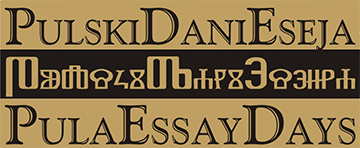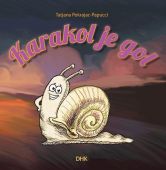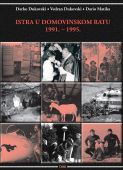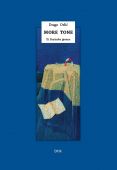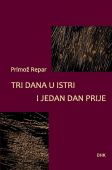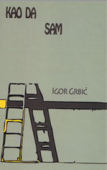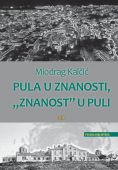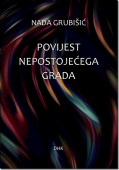Nova Istra No. 1-2/2008.
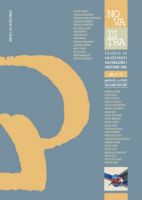
The introductory poems should make us remember Zlatko Tomičić, the recently died poet, important and versatile Croatian writer, big patriot, who was in prison during communism because of his consistent and noble Croatian national feeling.
Nova Istra
Literary and Cultural Journal
Pula, Croatia, No. 1-2/2008
SUMMARY
The introductory poems should make us remember Zlatko Tomičić, the recently died poet, important and versatile Croatian writer, big patriot, who was in prison during communism because of his consistent and noble Croatian national feeling.
The section Contemporary Literature presents fiction, poetry and travel writing by contemporary Croatian authors from the Republic of Croatia and Voivodina (today a region in Serbia).
The section 12th Šoljan Days in Rovinj contains essays, articles and studies presented last year at this traditional meeting dedicated to the big 20th century Croatian writer, author with European references, Antun Šoljan. He is here presented as an anthologist but the topic also covers the tradition of anthologies and anthological practice in the Croatian literature – from the Middle Ages to these days.
New translations into Croatian refer to the contemporary French (Franz Bartelt), Polish (Radosław Kobierski), Albanian (Arian Leka) and Italian (written in Croatia – Laura Marchig) literatures.
Studies, essays and notes, among other things, contain the study on Breda Urbič, the Slovene actress who spent a significant part of her career at Croatian theatres, particularly at the Pula Theatre.
The section Memory comprises two interesting texts by younger Croatian authoresses; one on Stalin as a motif and character in the contemporary Soviet and Russian literature, and another one on the ‘amnesia’ suffered by some Croats today in comparison with the recent communist history, also including uncritical tribute paid to ‘the image and work’, the cult-personality of Josip Broz Tito.
There is also an exceptionally interesting study on the less-known and almost forgotten Franciscan conventualist born in Pula, Giacomo Gorlatto, also a distinguished composer whose life and creation in his maturity were mainly related to Padua.
The native region topic was again dedicated to the literary-historical and philological analysis of a written monument, the most important one to the Croats in Istria, the so-called Istarski razvod (13th century).
Finally, the reviews refer to recent editions by contemporary Croatian writers and scientists as well as to books translated into Croatian.
Translation: R.Š.
Preuzmite dokument:
What to find and where? (42 KB)


TATJANA POKRAJAC – PAPUCCI: “Karakol je gol”
- Autor: Tatjana Pokrajac-Papucci
- Opseg: 36 str., bilješke o autorici i ilustratoru
- Uvez: meki, lijepljeno i šivano
- Cijena: 99 kn / 13 €
“ISTRA U DOMOVINSKOM RATU 1991. –...
- Autor: Darko Dukovski, Vedran Dukovski, Dario Matika
- Opseg: 780 stranica, bibliografija i sažetci
- Uvez: tvrdi, šivano, razdjelna vrpca
- Cijena: 300 kn / 40 €
“More tone”
- Autor: Drago Orlić
- Opseg: 78 str.
- Uvez: tvrdi, šivani; ravni hrbat
- Cijena: 90 kn / 12 €
PRIMOŽ REPAR: “TRI DANA U ISTRI I JEDAN DAN...
- Autor: Primož Repar
- Opseg: 64 str.
- Uvez: mekani
- Cijena: 95 kn / 13 €
“KNJIŽEVNI PORTRET: DANIEL NAČINOVIĆ”
- Autor: Skupina autora, B. D. Biletić (ur.)
- Opseg: 192 stranice + 90 min. DVD
- Uvez: tvrdi, šivano
- Cijena: 150 kn / 20 €
“Kao da sam”
- Autor: Igor Grbić
- Opseg: 145 stranica
- Uvez: tvrdi, šivano
- Cijena: 100 kn / 13,50 €
NADA GRUBIŠIĆ: “POVIJEST NEPOSTOJEĆEGA...
- Autor: Nada Grubišić
- Opseg: 133 str.
- Uvez: mekani
- Cijena: 145 kn / 19.50 €
“Utjeha južnih mora”
- Autor: Natalija Grgorinić - Ognjen Rađen
- Opseg: 285 stranica
- Uvez: tvrdi, šivano
- Cijena: 150 kn / 20 €
“Zvijezde nad Gočanom”
- Autor: Stjepan Vukušić
- Opseg: 120 stranica
- Uvez: meki, broširano
- Cijena: 90 kn
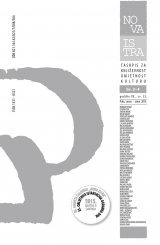
Nova Istra broj 3-4/2015.
- U sjećanje
- Suvremena književnost
- Tema: HRVATSKA KNJIŽEVNOST U SUSJEDSTVU
- Nagrada „Zvane Črnja“ za 2014.
- Novi prijevodi
- Studije, ogledi, zapisci
- U spomen: GORAN STARČEVIĆ
- Hrvati i Ukrajinci
- Prilozi o zavičaju
- Kritički pristupi i osvrti
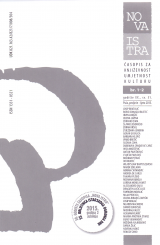
Nova Istra broj 1-2/2015.
- U sjećanje
- Suvremena književnost
- Tema: ANTUN GUSTAV MATOŠ (1873.-1914.)
- Novi prijevodi
- Studije, ogledi, zapisci
- Prilozi o zavičaju
- Kritički pristupi i osvrti
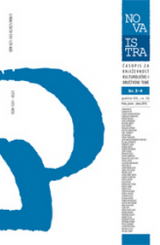
Nova Istra broj 3-4/2014.
- Suvremena književnost
- Novi prijevodi
- Tema: Optimizam
- Nagrada "Zvane Črnja" za 2013.
- Ogledi i zapisci
- Tema: Politika i političari
- Prilozi o zavičaju
- Kritički pristupi i osvrti
